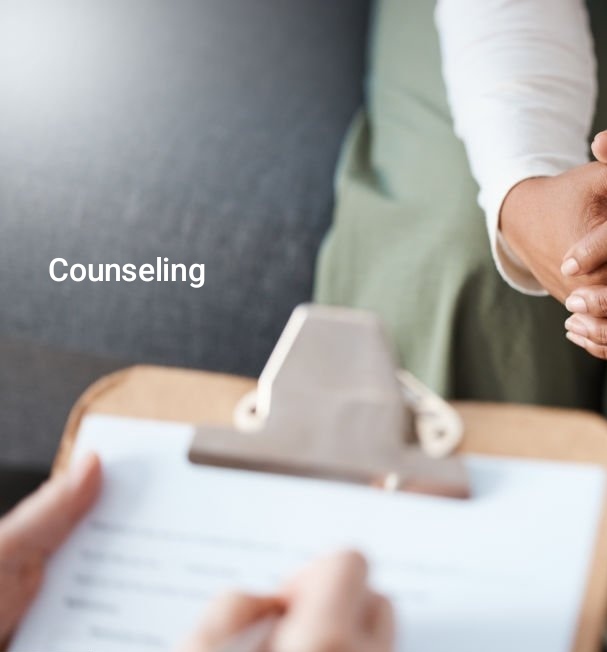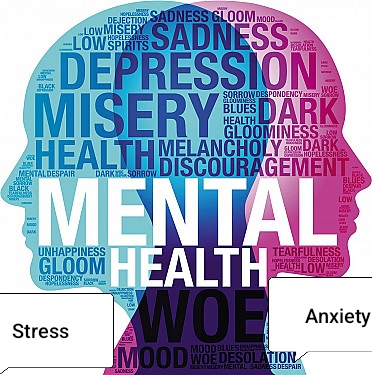Understanding Mental Health, its Common challenges, mental health facility signs, 5 tips for improving it.
Mental health is more than just a trending topic it’s a key part of our overall well-being. As awareness grows, I think it is a widespread issue so it’s important to truly understand what mental health means, why it’s so important, and how we can nurture it. So we’ll dive into why mental health matters, the challenges people face, and practical ways to care for your mental well-being.
What is Mental Health?
Mental health covers our emotional, psychological, and social well-being. It affects how we think, feel, and behave. Our mental health also shapes how we handle stress, relate to others, and make decisions. It’s vital at every stage of our life, from childhood to adulthood. A common misconception in our minds is that mental health is simply the absence of mental illness. But in reality, everyone has mental health, just like we all have physical health, and both need attention to thrive.
Why is Mental Health Important?
Good mental health is essential for living a balanced, fulfilling life. When we prioritize our mental well-being, we’re better able to manage stress, maintain healthy relationships, and work towards our goals. On the flip side, poor mental health can affect every aspect of life, from personal relationships to job performance.
Mental health issues such as anxiety, depression, and stress-related disorders are common and can happen to anyone. Recognizing the importance of mental health and addressing concerns early can make a big difference in your quality of life.
Breaking the Stigma Around Mental Health
One of the biggest challenges in mental health is the stigma attached to it. For far too long, mental health struggles have been dismissed or misunderstood, leading people to feel embarrassed or afraid to seek help. But mental health problems are just like physical ones—they need care, attention, and treatment.
By talking openly about mental health, we can break this stigma and create an environment where asking for help is seen as a strength, not a weakness.
Common Mental Health Challenges
Many people face mental health challenges at some point in their lives. Some of the most common are:
- Anxiety Disorders: These involve excessive worry or fear that interferes with daily activities.
- Depression: A mood disorder that causes extended periods of sadness, hopelessness, and a lack of interest in activities once enjoyed.
- Post-Traumatic Stress Disorder (PTSD): Triggered by a traumatic event, this condition leads to flashbacks, severe anxiety, and emotional distress.
- Bipolar Disorder: A mental health disorder marked by extreme mood swings, ranging from emotional highs (mania) to lows (depression).
What are the signs of mental health issues?
These conditions vary in severity but can often be effectively managed with the right treatment and early intervention.
- Persistent sadness, hopelessness, or lack of interest in daily activities.
-
- Emotional outbursts, such as anger, frustration, or frequent crying.
- Changes in sleep patterns, like insomnia, excessive sleep, or disturbed sleep.
- Shifts in weight or appetite, eating significantly more or less than usual.
- Becoming more quiet or withdrawn from friends, family, or activities.
- Substance abuse, including alcohol, prescription medication, or drugs.
- Experiencing feelings of guilt, low self-worth, or intense self-criticism.
- Difficulty concentrating, remembering, or making decisions.
- Physical symptoms like chronic fatigue, headaches, or unexplained aches and pains.
5 Tips for Improving Mental Health
Maintaining mental health requires consistent effort. Here are some simple, actionable tips to help boost your mental well-being:
- Stay Connected: Build and maintain strong relationships with family and friends. A solid support network can make a big difference during tough times.
- Practice Self-Care: Set aside time for activities you enjoy, whether it’s reading, exercising, or just relaxing. Self-care is key to reducing stress and promoting mental wellness.
- Seek Professional Help: If you’re feeling overwhelmed or stuck, don’t hesitate to reach out to a mental health professional. Therapy and counseling provide valuable tools for managing emotional struggles.
- Manage Stress: https://nutrimedix.online/stress-impact-on-physical-health-steps-to-manage/Life comes with stress, but learning how to handle it is essential. Mindfulness, meditation, and deep breathing exercises can help keep stress under control.
- Stay Physically Active: Regular exercise isn’t just good for your body—it’s great for your mind too. It can improve mood, reduce anxiety, and boost mental health overall.
- Get Enough Sleep: Sleep is crucial for mental well-being. Make sure you’re getting 7-9 hours of quality sleep each night to help regulate emotions and maintain a positive outlook. https://nutrimedix.online/role-of-sleep-5-ways-to-improve-sleep-quality/
Prevention and Support Measures:
- Early Intervention: Seek help at the first sign of mental distress.
- Promote Healthy Lifestyles: Regular exercise, balanced diet, and adequate sleep.
- Encourage Social Support: Maintain connections with friends, family, or support groups.
- Stress Management: Practice mindfulness, meditation, and stress-reduction techniques.
- Educate on Warning Signs: Awareness programs can help identify signs early.
- Encourage Open Conversations: Normalize discussions about mental health to reduce stigma.
- Provide Access to Counseling: Access to therapy, whether individual or group-based.
- Limit Substance Use: Avoid using alcohol or drugs to manage stress or emotions.
- Promote Self-Care: Encourage activities that boost self-esteem and relaxation.
- Offer Crisis Support: Provide immediate support and resources in emergencies.
- lets have a practical example of my sister having mental health Problem.
Practical example of improving mental health
My sister struggled with anxiety, stress, and mild depression. Feeling overwhelmed, she sought help from a therapist who introduced her to a self-care routine. She began taking daily walks, practicing mindfulness, and doing deep breathing exercises to manage stress. She also joined a yoga class to stay physically active, which helped improve her mood. She opened up to friends and family, finding support and understanding. Over time, she felt more balanced and better equipped to handle life’s challenges, realizing the importance of prioritizing mental health alongside physical health.

How to Support Others
If you know someone struggling with their mental health, offering support can make a world of difference. Be patient and listen without judgment. Encourage them to seek professional help and let them know they don’t have to go through it alone.
Sometimes, just being there for someone is the support they need to take that first step towards healing. Counseling is very important in making mind sound.
Conclusion:
Mental health matters. It’s an essential part of living a happy, fulfilled life. By breaking the stigma surrounding mental health, offering support to those in need, and taking proactive steps toward mental wellness, we can create a society that values mental health just as much as physical health. Caring for your mental health isn’t a luxury it’s a necessity. Remember, it’s okay to ask for help, and it’s okay to talk about mental health. Together, we can build a more supportive and compassionate world where mental health is no longer a taboo topic.



best ideas to remain physically active and engage in other actives which boost up your mental health
Thanks
Best idea